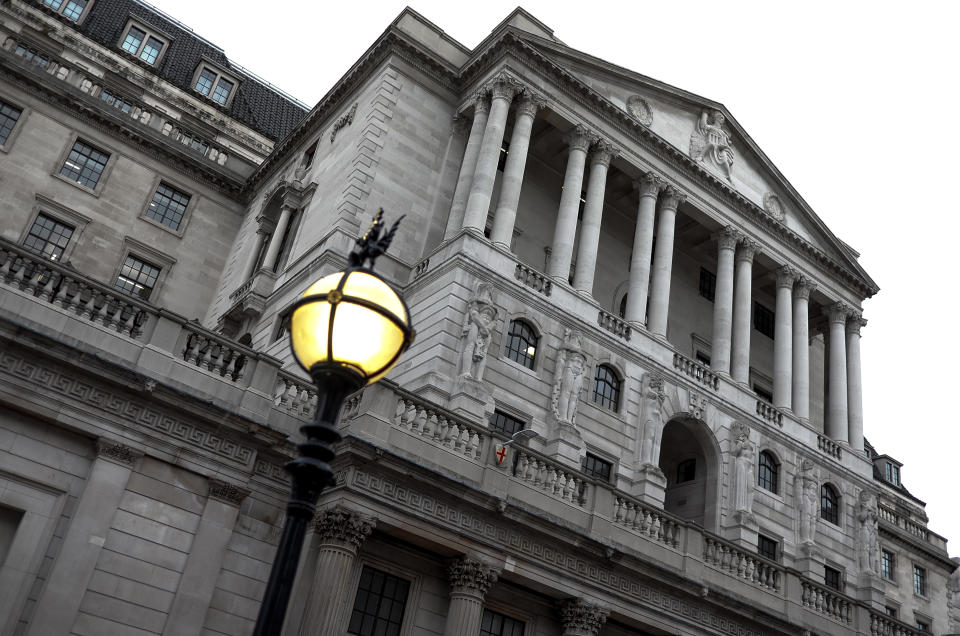Andrew Bailey named new Bank of England governor

Financial Conduct Authority (FCA) CEO Andrew Bailey has been named the new governor of the Bank of England.
Chancellor Sajid Javid announced on Friday that Bailey would take over at the central bank in March 2020, bringing to an end months of speculation about who replace outgoing governor Mark Carney.
Javid said Bailey was “the stand-out candidate in a competitive field.”
“He is the right person to lead the Bank as we forge a new future outside the EU and level-up opportunity across the country,” the Chancellor said in a statement.
Leicester-born Bailey is a veteran of the Bank of England. He joined the central bank in 1985 before rising to become a deputy governor from 2013 to 2016. He left in 2016 to run the FCA, Britain’s top financial watchdog.
“It is a tremendous honour to be chosen as Governor of the Bank of England and to have the opportunity to serve the people of the United Kingdom, particularly at such a critical time for the nation as we leave the European Union,” Bailey said in a statement.
“The Bank has a very important job and, as Governor, I will continue the work that Mark Carney has done to ensure that it has the public interest at the heart of everything it does.”
Carney said: “An extraordinary public servant, Andrew brings unparalleled experience, built over three decades of dedicated service across all policy areas of the Bank, and most recently as CEO of the FCA.”

Carney has led the Bank of England since July 2013 and initially planned to step down in 2018. The Canadian has twice delayed his departure due to Brexit. He was due to step down in January 2020 but the Treasury on Friday announced a short extension until 16 March to avoid his exit clashing with the 31 January Brexit deadline.
60-year-old Bailey is likely be seen as a safe choice by the world of high finance and economics, given his experience in both regulation and at the Bank of England. He is a Cambridge history graduate and holds a PhD.
“It is important to me that the Bank continues to work for the public by maintaining monetary and financial stability and ensuring that financial institutions are safe and sound,” Bailey said in a statement.
“I am committed to the Bank being an accessible and approachable institution, as well as an open and diverse place to work.”
The role of governor includes chairing the central bank’s three main policy committees, which oversee monetary, financial, and prudential policy in the UK. While the governor cannot set interest rates alone, they lead the committee’s decision making process on rates and are the public face of policy.
The governor also represents the central bank internationally at the G7, G20, Bank for International Settlements, and the International Monetary Fund.
READ MORE: Probe launched into hedge funds hijacking Bank of England audio
Bailey, who will be the Bank of England’s 121st governor, takes the helm during an uncertain period, both globally and nationally. He will have to navigate slowing growth, Britain’s exit from the EU, and continue predecessor Carney’s work on climate change.
While he will likely be greeted by the City, Bailey’s appointment may provoke ire among many retail investors.
Small time investors have lost millions of pounds investing in controversial ‘mini-bonds’. Many say the FCA under Bailey was too slow to wake up to the problems. The FCA was also slow to react to the collapse of Neil Woodford’s investment business earlier this year. Bailey and other FCA executives were heckled by angry investors at the watchdog’s annual meeting in July.
Bailey will serve an eight-year term and earn £495,000 a year. The Treasury will now begin the search for his replacement at the FCA and said an appointment will be made “well ahead of Mr Bailey’s departure.”
The Treasury began searching for Carney’s replacement in April. Bailey was tipped as a frontrunner from the start. Other names in the frame were London School of Economics head Minouche Shafik, Bank of England insiders Ben Broadbent and Andy Haldane, former Reserve Bank of India governor Raghuram Rajan, and Santander UK chair Shriti Vadera.

 Yahoo Finance
Yahoo Finance 